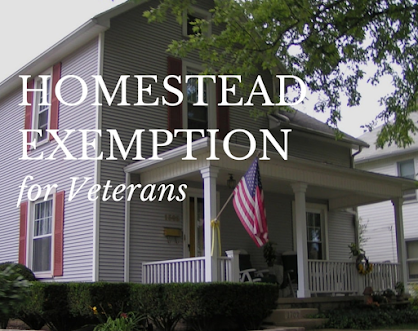In 2006 the legislature referred an issue to the public for a small property tax
exemption for totally and permanently disabled veterans. This was done via SCR06-001. But the legislature hid some of their cards, not telling us all the details, so what we approved was not what we got!This issue reached the voters as Referendum E in 2006 and was then overwhelmingly approved. Colorado voters believe in protecting our disabled veterans with such important benefits!
The legislature then created "enabling legislation" in the form of HB07-1251 to set into our statutes the provisions of the newly-approved Referendum E.
That sums up the trouble we now have in our state's small disabled veteran property tax exemption.
You see, we were asked to vote on a straightforward text the legislature gave us in the Blue Book:
"AN AMENDMENT TO SECTION 3.5 OF ARTICLE X OF THE CONSTITUTION OF THE STATE OF COLORADO, CONCERNING THE EXTENSION OF THE EXISTING PROPERTY TAX EXEMPTION FOR QUALIFYING SENIORS TO ANY UNITED STATES MILITARY VETERAN WHO IS ONE HUNDRED PERCENT PERMANENTLY DISABLED DUE TO A SERVICE-CONNECTED DISABILITY."
We didn't see the cards the legislature hid behind up their sleeves (or is it behind their backs?) They didn't show us anywhere in the Blue Book that SCR06-001 also had a description of the qualified disabled veteran that, in effect, eliminated almost half of Colorado's veterans who'd been totally and permanently disabled in the line of duty. They didn't tell us anything about their description in what we approved, but they certainly put their hidden cards into Article X Section 3.5 and the enabling statute HB07-1251:
(1.5) For purposes of this section, "disabled veteran" means an individual who has served on active duty in the United States armed forces, including a member of the Colorado national guard who has been ordered into the active military service of the United States, has been separated therefrom under honorable conditions, and has established a service-connected disability that has been rated by the federal department of veterans affairs as one hundred percent permanent disability through disability retirement benefits or a pension pursuant to a law or regulation administered by the department, the department of homeland security, or the department of the army, navy, or air force
The words in highlighted yellow cut thousands of Colorado's totally and permanently disabled veterans, injured in the line of duty and with honorable service, from the property tax exemption we thought we approved for them. We never saw and we never approved those words or anything like them!
The VA has two types of disability ratings for veterans who are totally and permanently disabled in the line of duty. One is called "100% rated" and the other is "Total Disability for Individual Unemployability," or TDIU.
Both ratings are based on the fundamental concept in the VA for compensation based the degree of an injury's impact on the veteran's ability to earn a wage after service:
• The "100% rated" is based on standard tables for the average earning loss caused by the average injury.
• "TDIU" is based on the actual earning loss caused by a worse-than average injury. A TDIU veteran has been individually assessed by VA as having an especially worse-than-average injury rendering him/her actually unable to ever work again.
Colorado's voters thought we were voting for, as the Blue Book put it for us to better understand:
"Veterans are rated 100-percent permanently disabled when a mental or physical injury makes it impossible for the average person to hold a job and the disability is lifelong"
Colorado's legislators and administrators would have us accept that 100% is not the same as total. That the amendment and the statute exclude TDIU veterans with total and permanent disabilities but accept 100% veterans with total and permanent disabilities.
Folks, the legislature simply hid their cards....or did they have them up their sleeves?
We didn't get what we voted for. We didn't protect all the veterans we thought we were protecting with Referendum E!










